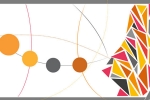PwC/AGEFI Monthly Barometer - October 2024
The Monthly PwC Business Barometer
Economic Confidence indicator in collaboration with AGEFI Luxembourg

Rate cuts fuel confidence rebound amidst economic downturn signals
Key Takeaways
- The PwC Business Barometer rose to -4 from the previous month's -10, driven by increased confidence resulting from ECB rate cuts.
- Despite growing confidence, business activity in Luxembourg continues to be subdued. The industrial sector faced significant challenges in the first half of the year, experiencing a 2.9% year-on-year drop in July, with no signs of imminent recovery.
- With inflation in the Euro Area converging to the 2% target faster than expected, additional rate cuts are anticipated in the last quarter of the year amid signs of economic contraction in Germany and France.
- While concerns about an economic recession in the US have eased, market attention has turned once again to the Middle East with heightened fears of further escalation after Israel's attack on Beirut and the subsequent military response from Iran, leading to a significant spike in oil prices.
In collaboration with AGEFI Luxembourg
Economic Confidence Indicator
October 2024
The monthly PwC Business Barometer reached -4 in September, recording a 6-point increase compared to the -10 recorded the previous month, but still remaining in negative territory. The confidence growth was mostly caused by the easing monetary policy of the ECB, which cut interest rates by 25bps for the second time in September.
As a result, confidence indicators in the Grand Duchy showed marginal improvements. In Luxembourg, the consumer confidence indicator rose last month for the first time since June, driven by a decrease in inflation from 1.7% in August to 0.8% in September, reaching its lowest level since the pandemic and well below the ECB’s target of 2%. In September, the consumer confidence indicator saw increased optimism in four of the five areas assessed, including a significant rise in major purchases planned by households. However, the business activity in Luxembourg, particularly the industrial sector, continued to struggle in the first half of the year, showing no signs of an imminent recovery. Industrial production fell by 2.9% in the first seven months of the year compared to the same period in 2023. According to STATEC business surveys, the industrial sector in the Grand Duchy remains on a downward trend, offering little hope for a short-term recovery. The construction sector, which has been heavily impacted by closures and job losses in the past year, has seen its workforce contracting by 1.6% in the second quarter. The only positive news comes from the housing market, where the number of transactions has risen sharply after five consecutive quarters at historically low levels. Despite this, prices remain low, having fallen by more than 8.3% year-on-year in Q2. However, it seems likely that real estate prices have reached their lowest point and should rebound slightly in the coming quarters, with view of the ECB’s rate cuts.
In the Euro Area, inflation slowed to 1.8% in September, with core inflation decreasing to 2.7%. The deceleration suggests that inflation is aligning with the ECB's target more rapidly than previously anticipated. Consequently, the central bank appears to be reevaluating its focus, directing attention towards addressing the region's subdued growth outlook. Following a 25bps interest rate reduction in September, the ECB now faces the pivotal question of how swiftly it intends to normalise interest rates. Amid concerns of a cooling economy, prolonged restrictive rates could potentially drive inflation below the 2% target, prompting the ECB to carefully consider its next steps. The economic landscape in Europe is increasingly portraying signs of a downturn, with Germany and France encountering various political and economic challenges. Germany’s composite PMI plummeted to 47.2 in September, marking a seven-month low and falling short of expectations. Similarly, France's composite PMI declined to 47.4, an eight-month low, signalling economic contractions in both countries. With growth facing mounting pressures, the ECB may opt for a more assertive approach, contemplating the possibility of implementing at least two additional rate cuts by the year's end.
In the US, after the Fed opted for a strong 50bps interest rate cut in September, the economy is heading towards a “soft landing”, pushing away the fear of a recession of the last months. The first indicator of such a trend is the new data on job creation for September, with 254,000 new jobs created in the last month. This number strongly beat the expectations of analysts and of the US Bureau of Labor Statistics itself, spreading optimism in the country. At the same time, these above expectations results have strong implications for the next cut rates. The Fed will no longer need strong interventions of further 50bps cuts in the last months of the year, but will rather opt for smaller cuts, if any at all.
In recent weeks, market attention has turned once again to the Middle East following Israel's attack on Beirut and the subsequent military response from Iran. The conflict has led to a significant spike in oil prices, with further increases anticipated, particularly if Israel targets Iran's oil facilities. Despite more than a year of conflict, a potential resolution does not appear to be imminent, heightening global concerns about further escalation.
About the PwC Business Barometer
The monthly PwC barometer, in collaboration with AGEFI Luxembourg, is an economic confidence indicator that is intended to be a simple and pragmatic tool aimed at capturing the economic atmosphere of the Grand Duchy each month.
The indicator is based on a number of sentiment indices published monthly by Eurostat and Sentix, which are based on surveys (businesses, consumers or investors/analysts).
The indicators used are: consumer confidence (EA for euro area and LUX for Luxembourg), industrial confidence (EA and LUX), construction confidence (EA and LUX), financial confidence (EA), retail confidence (EA), services confidence (EA) and the Sentix Index (EA).
Contact us

Partner, Global AWM Market Research Centre Leader, PwC Luxembourg
Tel: +352 49 48 48 2191










